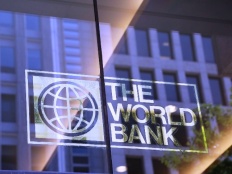Al-Haq calls on the World Bank to strengthen protection in conflict-affected areas through the safeguards framework reform process
Latest Topics
01، Apr 2025
Erasure in Motion: Israel’s Forcible Displacement of West Bank Bedouin Communities
30، Mar 2025
SPECIAL FOCUS: Consolidating Annexation of the West Bank: Israel’s Demolitions in Area B
28، Mar 2025
Over 200 South African and Palestinian Human Rights Organisations Urge South Africa to Return to the International Court of Justice for Provisional Measures
27، Mar 2025
Re: PHROC Warns that UN Mandates are Failing to Protect Palestinians as Israel Kills Over 50,000 Palestinians, Meek Condemnations are Complicity
25، Mar 2025
Joint press release: Coalition Appeals Dutch Court Ruling for Failure to Uphold Obligations Under International Law
24، Mar 2025
World Water Day: Deprivation of Water and destruction of water installations are tools of Israel’s Genocide against the Palestinian people
Related Subjects
12، Oct 2019
Over 280 ESCR-Net Members Call for Stronger Treaty to Regulate Corporate Activities
09، Oct 2019
Al-Haq’s Engagement with the UN Committee on Economic, Social and Cultural Rights for Israel’s Fourth Periodic Review
08، Oct 2019
Al-Haq Welcomes Launch of World Health Organization Report on the Right to Health in the Occupied Palestinian Territory



 On 16 June 2016, Al-Haq called upon 14 World Bank Executive Directors to strengthen protection in conflict-affected areas, particularly situations of occupation, through the World Bank safeguards framework. In October 2015, Al-Haq met with several World Bank representatives, including the United States Executive Director, Mr. Matthew T. McGuire. During these meetings, Al-Haq emphasised the importance of focusing on conflict-affected areas as part of the reform process of the World Bank’s environmental and social policies in order to ensure maximum protection of human rights in development projects.
On 16 June 2016, Al-Haq called upon 14 World Bank Executive Directors to strengthen protection in conflict-affected areas, particularly situations of occupation, through the World Bank safeguards framework. In October 2015, Al-Haq met with several World Bank representatives, including the United States Executive Director, Mr. Matthew T. McGuire. During these meetings, Al-Haq emphasised the importance of focusing on conflict-affected areas as part of the reform process of the World Bank’s environmental and social policies in order to ensure maximum protection of human rights in development projects.